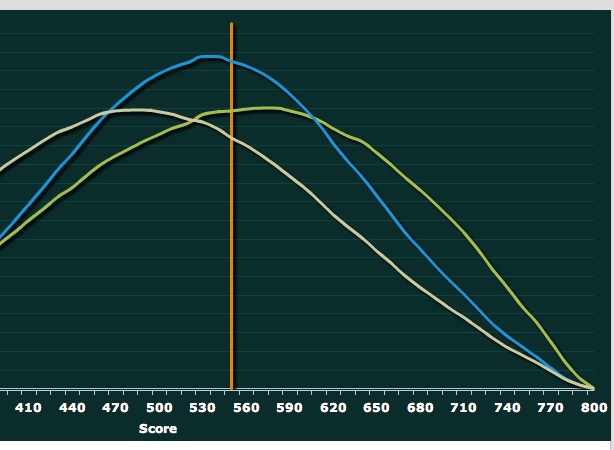A client recently sent me this handy new utility from GMAC, purveyors of the GMAT, which allows test-takers to rate their score with reference to their cohort filtered by intended degree, age, gender, country, and so on.
If you try it you will be able to see how you stack up against the sub-group you are really competing against.
You may also take heart that the median is much lower than you think. True, this doesn’t help “GMAT paranoia” when you look at your elite school and find it has an average accepted GMAT of 720 and your score is 680…
For that you need to absorb what the schools keep telling us — once again here in a recent WSJ interview with Derrick Bolton Director of MBA Admissions at Stanford GSB — which is that the GMAT is only one among many factors that determine admission.
WSJ: “Do you check out the GMAT score and if it’s below a certain number, put that application aside?”
Bolton: “That would rob us of a lot of talent. The GMAT is helpful in terms of understanding how someone can perform in the first year, but that’s one small piece of the overall M.B.A.”
What would be nice, for the next iteration of this GMAC utility, would be the ability to check a box that shows the GMAT arc of accepted students at Stanford, or Harvard, or Tuck, etc. That arc would by definition show the 50% below the incoming median score, and how low incoming scores can be, and that would be reassuring to the many hundreds of applicants who will get into elite schools despite not being “GMAT geniuses.”
See also I Scored 700, Should I Retake? and The Myth of the 800 GMAT.

